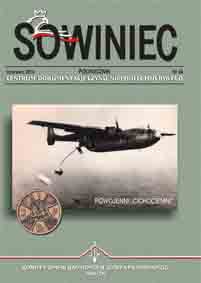Mjr prof. Stefan Szuman w walce o niepodległość Polski (1939-1945)
Major Stefan Szuman in the battle for the independence of Poland (1939-1945)
Author(s): Marek Mariusz TytkoSubject(s): History
Published by: KSIĘGARNIA AKADEMICKA Sp. z o.o.
Keywords: Szuman Stefan (1889-1972); World War II; German occupation in Poland; underground teaching; underground Polish culture; underground Polish science; Union of Armed Struggle – Home Army (1941-1945); Independent Partisan Battalion “Rock” („Skała”) (1944)
Summary/Abstract: Professor Stefan Szuman (1889-1972), Ph.D. in Medicine and Philosophy, a major of the Polish Army, retired since 1922. The article focuses on his independence activities during the Second World War. In 1939 Szuman voluntarily started and headed a military field hospital in Chrzanów, near Janów Lubelski, during the first phase of the war. During the German occupation of Poland, he lived in the manor of the Kern and Turowicz family in Goszyce and in the property of the Kozłowski family (Ammoreaux) in Luborzyca. There he conducted undercover teaching and first-aid courses on behalf of ZWZ (Związek Walki Zbrojnej, the Union of Armed Struggle) and AK (Armia Krajowa, the Home Army) in the years 1941-1944. He actively participated in the creation of underground Polish culture. He also took part in undercover academic life, giving speeches during the meeting of the PAU Committee on History and Literature in May 1942. In the years 1940-1944 he commuted to Kraków to provide undercover teaching sessions to students of Pedagogy at the Faculty of Philosophy of the Jagiellonian University. As a soldier and physician, operating under the codename „Dr. Flis”, „Flis”, or „Łukasz Flis”, he was a member of the command of the „Skała” (the Rock) Independent Guerrilla Battalion. He organized the medical and sanitary department of the battalion and headed it for 5-6 weeks as part of the AK „Burza” (the Storm) operation during clashes and battles with the Germans in the area of Miechów (in August and September 1944), taking part in battles such as the battle of Sadki and Zaryszyn. The article also describes a meeting between Warsaw Uprising refugees and the representatives of AK in Goszyce near Kraków on 31 December 1944, which included Jerzy Andrzejewski, Mieczysław Chojnowski, Czesław Miłosz and Professor Władysław Tatarkiewicz. The Author of the work also mentions the immediate environment of Schuman during World War II, including the story of his future son-in-law, Col. Zbigniew Czyżewicz and his imprisonment by the NKVD in retaliation for participating in the AK „Burza” operation, as well as his deportation to a prison camp in the Soviet Ukraine (March-August 1945).
Journal: Sowiniec
- Issue Year: 2014
- Issue No: 44
- Page Range: 51-84
- Page Count: 34

